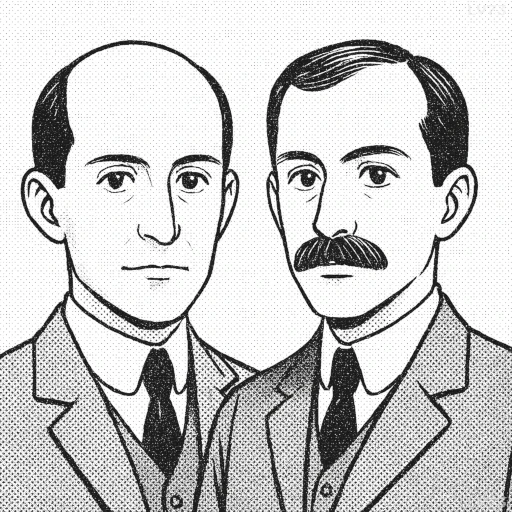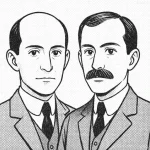“The airplane stays up because it doesn’t have the time to fall.”

- Wilbur Wright: April 16, 1867 – May 30, 1912
- Orville Wright: August 19, 1871 – January 30, 1948
- American
- Aviation Pioneers, Inventors, Engineers, First to Achieve Powered, Controlled Flight
table of contents
Quote
“The airplane stays up because it doesn’t have the time to fall.”
Explanation
This quote is a witty and paradoxical summary of the principles of flight, attributed to Orville Wright. On the surface, it sounds humorous or ironic, but it cleverly encapsulates a truth about aerodynamics: an airplane remains in the air not by defying gravity, but by continuously generating lift through forward motion. If the plane were to stop moving, gravity would indeed cause it to fall. The key insight is that flight is a dynamic balance, not a suspension of natural laws.
The deeper meaning lies in the idea that momentum and continuous motion are what sustain seemingly impossible feats. In the context of the Wright brothers’ work, this quote illustrates their understanding that successful flight required constant adaptation, motion, and balance—not merely the existence of wings or an engine. It reflects the practical wisdom of pioneers who discovered that keeping something aloft is often more about managing forces in real time than achieving a static condition.
In a broader, metaphorical sense, the quote has modern resonance. It speaks to the nature of progress and achievement: often, we succeed not by eliminating all risk or failure, but by moving forward with enough momentum that doubt, fear, or collapse don’t catch up. For entrepreneurs, artists, or scientists, the lesson is clear—keep moving, keep adjusting, and your vision may stay aloft long enough to become real.
Would you like to share your impressions or related stories about this quote in the comments section?


